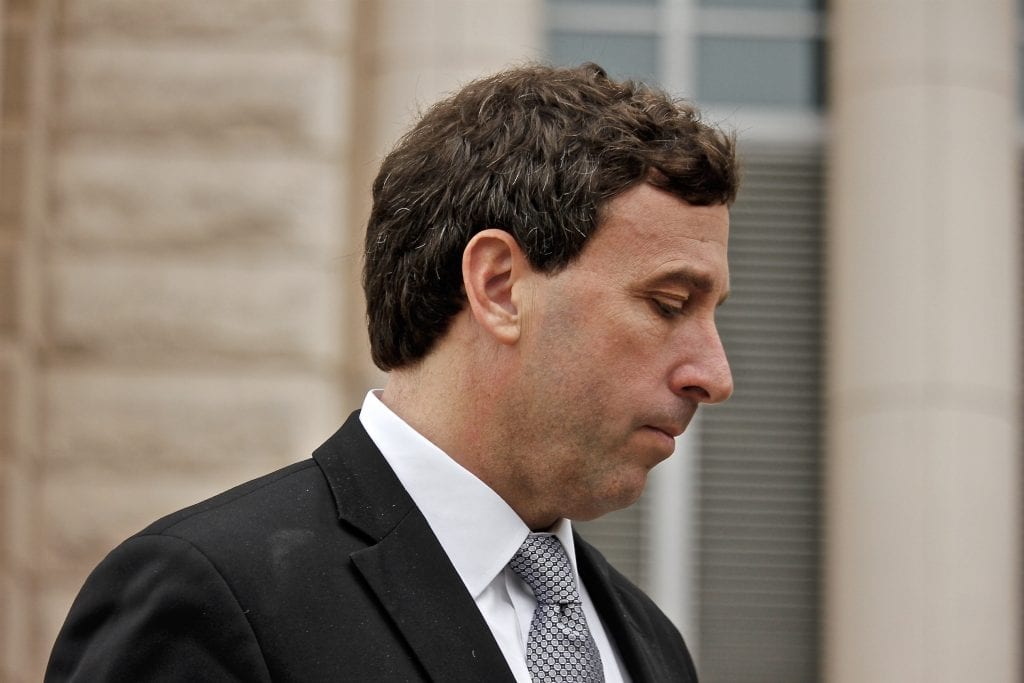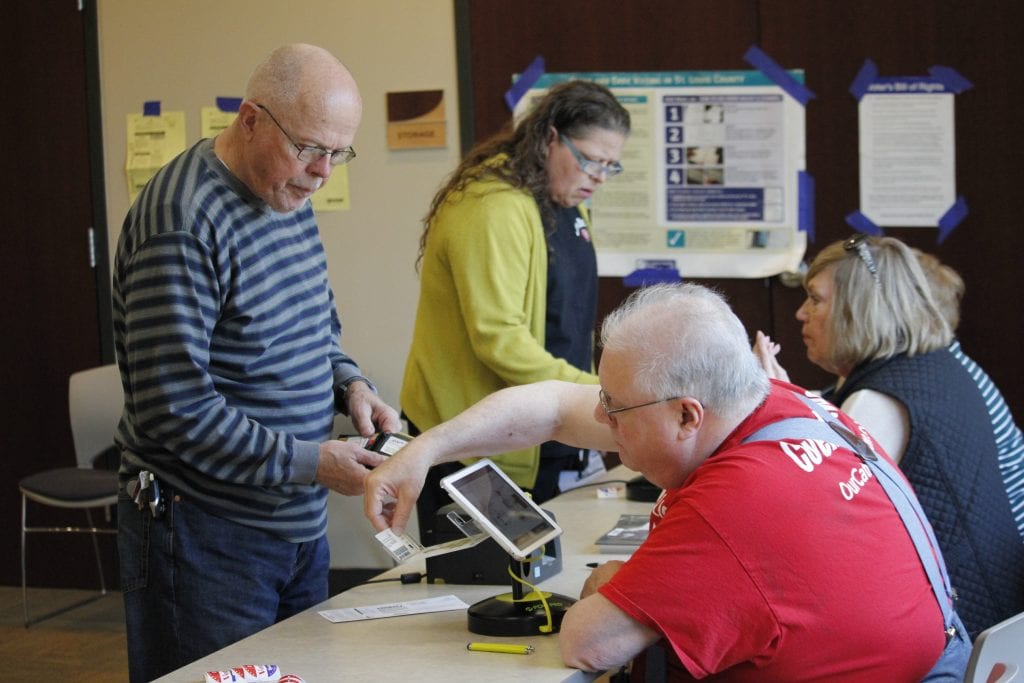By Gloria Lloyd
News Editor
glorialloyd@callnewspapers.com
When former St. Louis County Executive Steve Stenger is sentenced next month on federal corruption charges, the judge will receive letters from the victims of his pay-to-play scheme to trade county contracts for campaign donations.
And what the court considers his biggest victim, the one million residents of St. Louis County, will be represented in victim impact statements by the County Council.
The letter to U.S. District Judge Catherine D. Perry will be signed by the entire council, and the majority of it will be written by council Presiding Officer Ernie Trakas, R-Oakville.
“I want the court to understand that this isn’t about one contract, this isn’t about a short period of time — this is about a systemic pay-to-play operation that had impacted the county for at least six years and in many ways, and throughout the entire county,” Trakas said of what he’ll write.
The victim statement will also be signed by new County Executive Sam Page and, potentially, county Office of Diversity head Hazel Erby, who left the County Council in May to take a job working for Page.
That means three of Stenger’s top archrivals from his bitter infighting with the council could get a say in sending him to federal prison.
It’s a striking turn of events for Stenger, who as county executive once sent his own letter to Perry asking for lenience for a convicted drug trafficker facing prison time.

As a former criminal defense attorney before he voluntarily surrendered his law license as part of his plea deal, Stenger once argued cases in the same courthouse he’ll be sentenced in. But in this case, that familiarity doesn’t necessarily give him an advantage — Trakas, also an attorney, has also argued cases before Perry.
As part of federal sentencing guidelines, prosecutors have to meet with victims and allow them to appear in court at sentencing or write a victim impact statement.
Stenger pleaded guilty May 3 in a plea deal that will likely result in him serving prison time.
At Stenger’s guilty plea hearing, Perry outlined the sentencing agreements contained in the 14-page plea deal: His crimes started with a level 7 according to sentencing guidelines. Prosecutors added 12 because the offense was more than $350,000, added three because he was in a management position and was over five or more employees, added two because he violated the public trust and took three levels off because he accepted responsibility.
According to federal sentencing guidelines, that level of 21 amounts to 37 months to 46 months in prison, around three to four years.
Perry is not bound by that recommendation, and will be influenced by what is included in Stenger’s pre-sentencing report, which will include the victim impact statements and any arguments he makes for leniency.
But the council does not appear like it will take a lenient stance in its impact statement on behalf of taxpayers. The five current members met in closed session with the prosecutor overseeing the corruption case, Assistant U.S. Attorney Hal Goldsmith, for 90 minutes July 3 to go over the ways the council believes the county is a victim and the potential of recovering some of the money lost to Stenger’s schemes.
As part of sentencing, Stenger agreed to pay restitution. But the question is how much damage he did to the county and what that will cost.
Trakas said the way federal sentencing typically works, only money lost directly to “actual quid pro quo” in the crimes at hand will be up for restitution. He said that prosecutors have likely frozen Stenger’s accounts in advance of sentencing to prepare for the financial repercussions.
The allegation at the heart of the 44-page indictment that Stenger said was true was that businessman John Rallo donated $10,000 a year to Stenger, for which Stenger unsuccessfully tried to get Rallo a county insurance contract. He eventually did use the St. Louis County Port Authority to concoct a phony $135,000 marketing contract for Rallo’s company, Cardinal Consulting. The indictment also outlines a $149,000 annual lobbying contract the St. Louis Economic Development Partnership had with John Bardgett & Associates that Stenger pushed for, although that contract preceded Stenger’s tenure.
But in Trakas’ impact statement, he plans to take a broader view of the damage he believes Stenger inflicted on the county, including the lease at the North County Government Center at Northwest Plaza.
His statement, which was reviewed by the council at a Saturday morning closed session last week, will run four to six pages single-spaced.
“This is about both the financial impact and human impact of a systemic criminal enterprise operated by a corrupt county executive,” Trakas said. “So the impacts will deal with the actual cost, both financial and human. I really can’t get more specific because frankly the matter is confidential.”
The letters could be made public at the time of sentencing.
As for how Trakas got the job of summarizing the council’s — and the county’s — feelings about Stenger, he said 3rd District Councilman Tim Fitch, R-Fenton, suggested he write it and the rest of the council agreed.
The U.S. Attorney’s Office declined to comment on the meeting with the council. The office has consistently said that the investigation is ongoing, but Goldsmith was tight-lipped on that subject with the council. He gave no indication of whether other indictments are imminent.
For now, the council is focusing on what to say about Stenger, rather than the other three people charged in the pay-to-play deals. Sheila Sweeney, the former head of the Economic Development Partnership, the joint city-county economic development agency, cooperated with the investigation into Stenger and pleaded guilty to a single count of misprision of a felony for helping Stenger cover up his crimes.
Stenger’s former Chief of Staff Bill Miller also pleaded guilty to the same crimes as Stenger. Rallo initially pleaded not guilty to the same felonies as Stenger.
“We will have similar victim impact statements prepared for those sentencings as well,” Trakas said.
The county’s statement on Stenger will address the way Stenger commandeered the Partnership and the St. Louis County Port Authority to carry out the fraud, along with both the financial and non-financial impacts of that, Trakas said.
“St. Louis County’s image as a place for economic development or for investment by outside companies certainly has to be impacted by Mr. Stenger’s tenure,” he said.





























